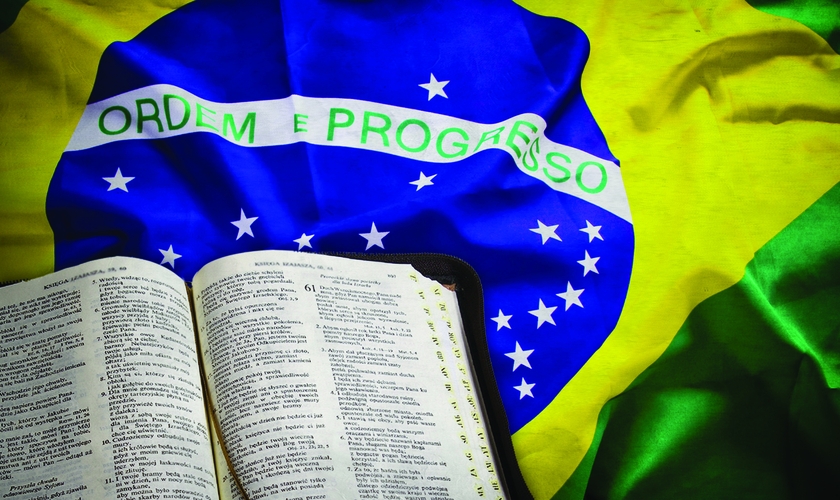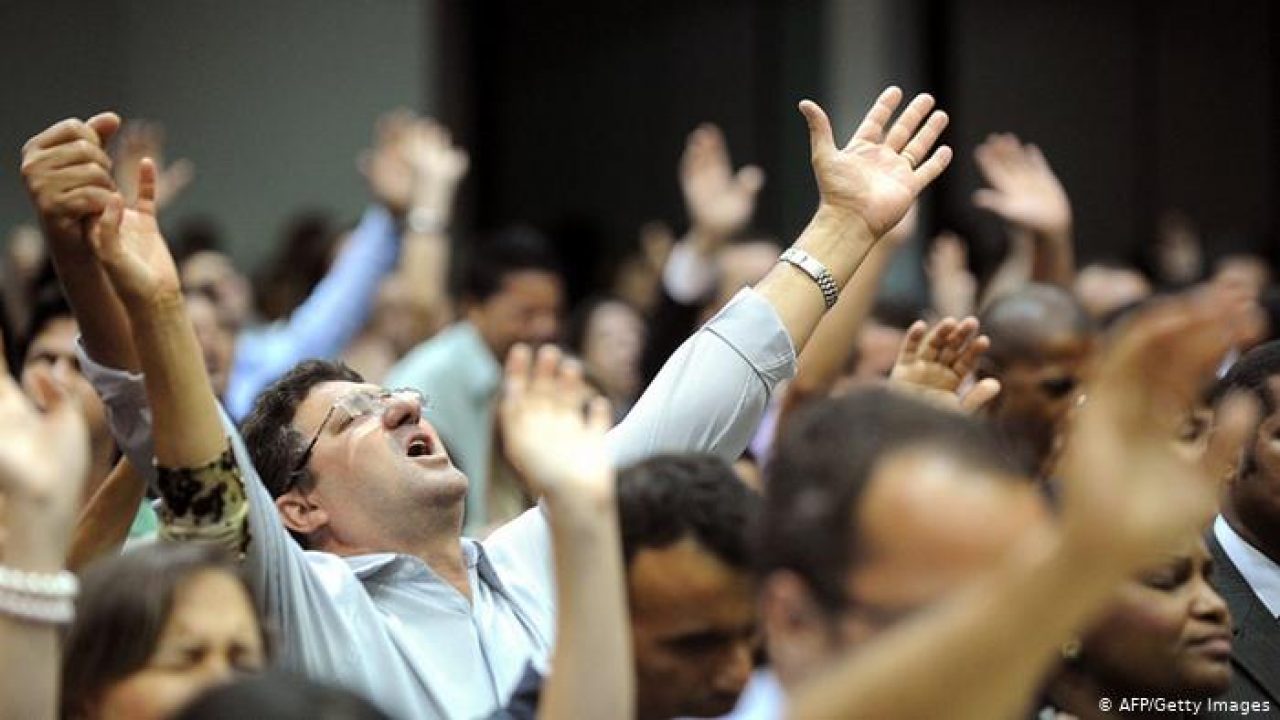RIO DE JANEIRO, BRAZIL – The growth of evangelicals in the Brazilian population is reflected in the political scenario. For the 2020 elections, there was a 34 percent increase in the registration of candidates who use the designation of male and female pastors in the name that will show up at the polls.
There are 4,915 registrations that exclusively refer to evangelical Christianity, almost half of the 11,059 candidates explicitly linked to religion. In the 2020 municipal elections, religious candidates increased by 26 percent compared to 2016, which totaled 8,783.
EXAME compiled updated Federal Electoral Court (TSE) data to detect candidacies linked to this topic. The survey was conducted considering the ballot name and the candidates’ main occupation. The increase is higher than expected, since between one election and the next the number of candidacies grew by ten percent, breaking records. The multiplication of candidates is an effect of the rule to end electoral coalitions for places on city councils.

The majority bonds to religion by the name that will be displayed on the ballot box. In other words, like health professionals and those linked to the security forces, there is a greater influx of religious into the political world than can be detected only by the candidates’ professional statements.
The growth of religious candidacies comes, above all, from the growth in the number of evangelical candidates for the position of Mayor and City Councilor. Exclusively Catholic candidacies have remained stable with their 210 candidates. There are 63 candidates linked to African religions and three to Judaism.
When only candidates who have declared themselves “a priest or member of a religious sect” as an occupation are considered, the number drops considerably: there are 907 candidates for Mayor or City Councilor. In this respect, there has been a 17 percent increase since 2016.
The Republicanos party is the one with the highest number of explicitly religious candidates, with 863, who also leads among the clearly evangelicals, 394. This share of Christians has grown by 48 percent within the party since the last elections. The party is linked to the Universal Church of the Kingdom of God and supports Mayor Crivella’s re-election in Rio de Janeiro. The PSC comes second, losing ten percent of openly evangelical cadres since 2016.
But these numbers could be higher due to a number of reasons: not all religious use terms linked to the faith in their ballot name, among those who do, not all are specific. Missionary and brothers, for instance, are not the exclusive use of a single Christian denomination. EXAME also separated ambiguities with surnames and family relationships, for instance, Evangelista and Bispo. The main name of the Republicanos is not part of the group: Celso Russomanno, former TV host and deputy, running for Mayor of São Paulo, leads the last Datafolha survey with 27 percent of voting intentions.
Pará, Rio de Janeiro, and Goiás are the states with the highest proportion of explicitly evangelical candidacies: 72, 42, and 37 percent, respectively, higher than in the rest of the country.
The growth of evangelical candidates is in line with the growth of this religious front among the Brazilian population. According to the latest IBGE (Brazilian Institute of Geography and Statistics) census in 2010, approximately 22 percent of Brazilians are Evangelical, or over 44 million people. In the 1991 census, they were only nine percent. The number of Catholics, which was over 90 percent, stood at 65 percent in the last census. This change in the profile of Christianity has been occurring in Brazil for decades, as many Catholic faithful are shifting to the Protestant faith.
Expanding religion
The Evangelicals in Brazil, in their different currents, should outnumber Catholics within the next decade, according to studies by demographer José Eustaquio Alves of the IBGE’s National School of Statistical Sciences. The number of evangelicals is growing each year by a little under one percent, while the number of Catholics is decreasing by a similar proportion.
Pastors, religious leaders, and those active in their communities, succeed in having broad contact with a portion of the population in their churches. For anthropologist Aramis Silva, this is a strong point for pastors as candidates among part of the voters.
“Before generating votes, audiences produce the world’s essential capital in networks: visibility. In other words, what we need to understand is that the Evangelical politicians have brushed aside the logic of contemporary representation,” says Silva, a researcher with the Study Group on Religion and the Public Sphere linked to the Brazilian Center for Analysis and Planning (CEBRAP). “These agents, often misconstrued as mere reactionaries, need to be regarded as key players in the dispute for a new Brazil.”
In addition to the growth of Protestants in the number of faithful in Brazil, Evangelical politicians are more present in institutional politics than their counterparts of other religions, principally because of organizational issues within churches.
While the Catholic Church is more centralized, with all priests needing to be ordained by bishops who are subordinate to Vatican headquarters in Rome, the evangelical churches have different strands, each with its own rules for ordaining pastors or even creating new religious fronts.
The Catholic centralization makes it less easy for candidates to officially enter politics, says Arnaldo Mauerberg Junior, professor at the Institute of Political Science of the University of Brasilia. “There is greater flexibility in several Evangelical churches. If a pastor wishes to run, he tends to be less controlled, depending on his church. Among Catholics this is more difficult,” he says.

Evangelical bench
In the 2018 national elections for Congress, the Inter-union Department of Parliamentary Advisory (DIAP) counted 91 elected members of what it named the “Evangelical bench”, an increase over the 78-member caucus of the preceding legislature. In these municipal elections, candidates named pastors are spread across a number of parties.
Once elected, the fact that these politicians are evangelical should not impact directly on policymaking: the Constitution preaches a secular state and elected politicians must seek the best policy for all Brazilians, not only for their voters.
Although the Constitution determines the Brazilian state as secular, candidates tend to appeal to their niche, particularly in the legislature, where there are more seats. In the case of Evangelicals, there have been public pledges more geared toward the behavioral and conservative field, such as restrictions on the right to abortion (currently allowed in Brazil only in specific cases) or sex education in schools.
Researchers also recall that this group is far from being cohesive and congruent: “There are those who are more vocal in defending behavioral standards, and there are those who are more silent, who have an organization behind them and tend to advocate, once elected, for standards dear to their organization, such as tax reductions for churches,” says Mauerberg, of UnB (University of Brasilia).
There is still a difference between federal election politicians and those in this municipal election, says Mauerberg. “A candidate may even have a platform that speaks to a more conservative electorate, but there is a limit to what a city councilor can do in his municipality in some of these broader agendas because much [law] comes straight from Brasília,” he says.
In any case, for the religious, the same rule applies: despite the visibility they eventually have in their communities, candidates tend to be elected with greater support from their party in the campaign or the organization behind their candidacy, like a large church that finances a candidate and provides him with exposure. The campaign money and organization still matter, and very much so.
Source: Exame

